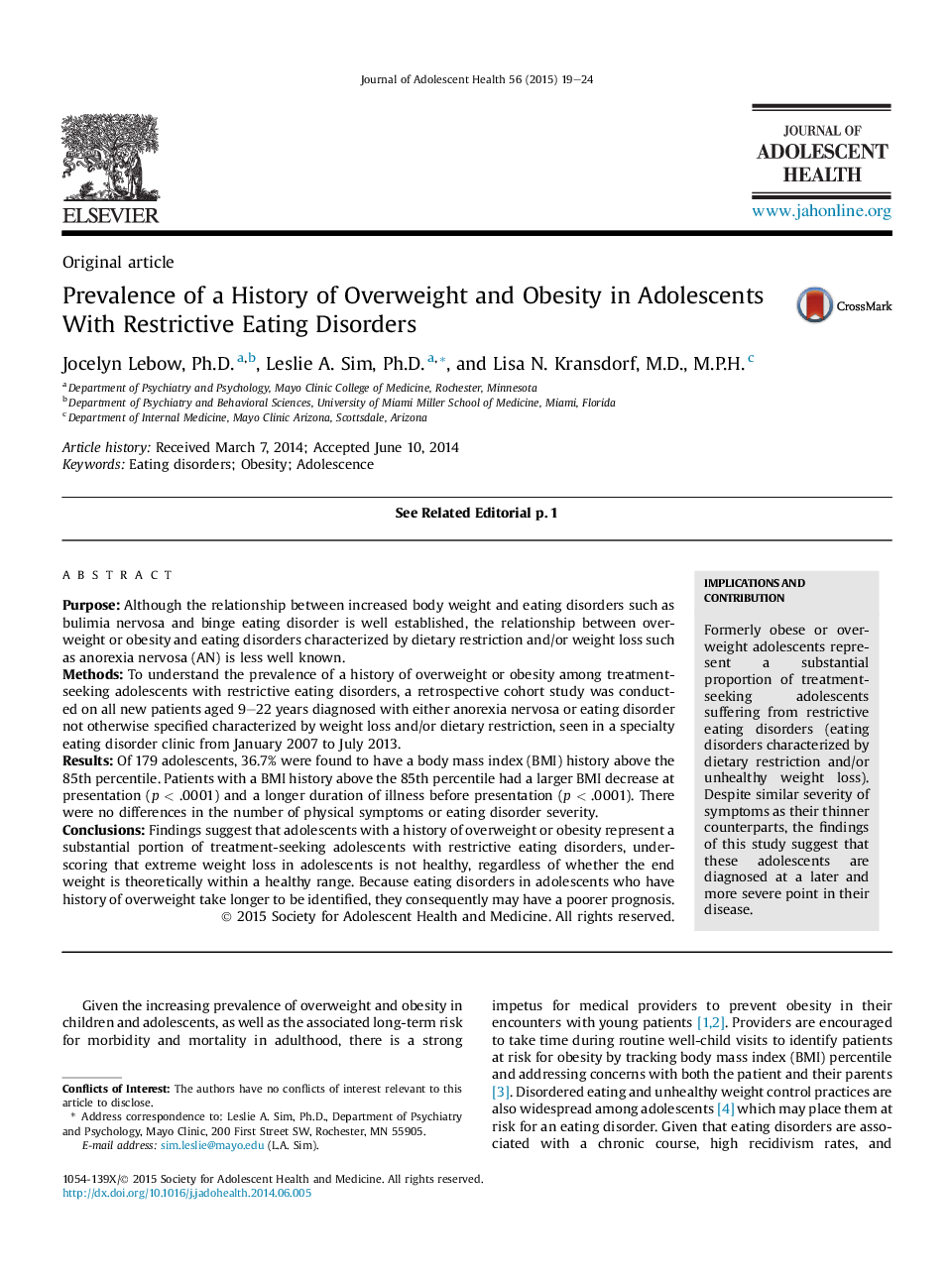| Article ID | Journal | Published Year | Pages | File Type |
|---|---|---|---|---|
| 1078533 | Journal of Adolescent Health | 2015 | 6 Pages |
PurposeAlthough the relationship between increased body weight and eating disorders such as bulimia nervosa and binge eating disorder is well established, the relationship between overweight or obesity and eating disorders characterized by dietary restriction and/or weight loss such as anorexia nervosa (AN) is less well known.MethodsTo understand the prevalence of a history of overweight or obesity among treatment-seeking adolescents with restrictive eating disorders, a retrospective cohort study was conducted on all new patients aged 9–22 years diagnosed with either anorexia nervosa or eating disorder not otherwise specified characterized by weight loss and/or dietary restriction, seen in a specialty eating disorder clinic from January 2007 to July 2013.ResultsOf 179 adolescents, 36.7% were found to have a body mass index (BMI) history above the 85th percentile. Patients with a BMI history above the 85th percentile had a larger BMI decrease at presentation (p < .0001) and a longer duration of illness before presentation (p < .0001). There were no differences in the number of physical symptoms or eating disorder severity.ConclusionsFindings suggest that adolescents with a history of overweight or obesity represent a substantial portion of treatment-seeking adolescents with restrictive eating disorders, underscoring that extreme weight loss in adolescents is not healthy, regardless of whether the end weight is theoretically within a healthy range. Because eating disorders in adolescents who have history of overweight take longer to be identified, they consequently may have a poorer prognosis.
